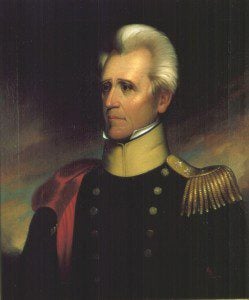New York Times columnist Ross Douthat has a new book out. It’s called Bad Religion: How We Became a Nation of Heretics, and it’s getting attention recently as a critique of what the author says is America’s diseased religious soul. Religion in America is suffering, says Douthat, and not as many religious Americans would suspect—not from erosion by atheism or apathy. In fact, American religion (by which he essentially means Christianity) is rotting from the inside out. The traditional impulses of Christianity are slowly being phased out, and other religious values—less inspired, less moral, and less socially constructive ones—are moving in. These new influences, Douthat argues, are at the root of many of America’s contemporary social and political problems. “America’s problem isn’t too much religion, or too little of it. It’s ‘bad religion.’”
Bad Religion, then, is a book—erudite but not academic—about religion’s influence on the social and moral health of the United States. What kind of influence do different kinds of Christianity have on American society? What kinds of religion are good for the country, and which are not? It’s a complex question, and Douthat gives a nuanced response: different stripes of Christianity contribute in different ways. Nonetheless, “orthodox” Christianity, he argues, has always provided the staying power that holds the country together. For Douthat, a conservative Catholic, orthodox Christianity means the “shared theological commitments that have defined the parameters of Christianity since the early Church.” This has been the Christianity of mainline Protestantism and eventually of Catholicism, and it is this orthodoxy, Douthat argues, that has the right blend of moral virtues to hold together “a teeming, diverse, and fissiparous nation.” The United States’ many heresies—the scores of American faiths that have broken with the ancient creeds, added or trivialized scripture, and turned from traditional Christian ethics—have given the country energy and vitality. But America’s underrated dogma, he says, has kept it somewhat harmonious and intact.
For this reason, the recent decline of orthodox Christianity endangers America’s equilibrium. The tensions between orthodoxy and heresy has helped keep America erect thus far, but as the country’s innovations begin to overwhelm its tradition, the favorable matrix of society begins to break down. The virtues of orthodoxy—stability, selflessness, humility—disappear, and the triumph of America’s heresies leave us energetic but combative, as well as greedy and solipsistic. So we buy into ideas like the prosperity gospel, we embrace hypernationalism, and we think too highly of ourselves. We increasingly become extremist, and we begin to pull apart from each other.
The question for this venue is obvious: Where does Mormonism fit in all this? If it is a “heresy,” as we rightly suspect, does it have—is it having—the deleterious effects that Douthat claims? Is it hurting the American social fabric? Corroding America’s virtues? Is Mormonism “bad religion”?
The book, in fact, doesn’t have a great deal to say about Mormonism directly. (And generally it doesn’t single anyone out.) Douthat does indeed crowd Mormons in with his heretics, and in a recent interview with pundit Andrew Sullivan, he made it clear that he sees Mormonism this way. But mostly Mormons are guilty by association. Presumably, Mormonism is contributing to American decline in the same ways as other “heretical” groups are.
Perhaps there are cases to be made about Mormonism’s social liabilities, but in my view the offending aspects of Douthat’s “bad religion” are not among them. Whatever else they might be, Mormons are clearly not, for instance, adherents of the prosperity gospel. Say what one will about the efficacious corporate structure and administration of the Church, and the professional and business acumen that that Mormonism supposedly cultivates in its missionaries. Say what one will, even, about Mormon multi-level marketing and the mentality of the Saints in Utah who ascend, each year, into larger homes higher in the foothills and away from centers of community. But however one might quibble on these points, there simply isn’t (and has never been) any substantive theology of affluence in Mormonism. Much to the contrary. Mormons still know—or should know—what their namesake did: that hearts set upon riches, even derivatively, are bound for destruction. And all of this the strange logic of Harper’s Weekly notwithstanding.
Nor does Mormonism make its adherents, as Douthat’s thinking about America’s heresies would suggest, socially disagreeable. Too many Mormons, it is true, are clannish and insular. This is at least partly a vestige of social history; partly it reflects the rigor of the faith. Oriented to their own communities and sometimes out of touch with others, Mormons can indeed entertain a sense of self-importance. But unlike others that Douthat arraigns, Mormons are categorically a service-oriented people, a long-known fact that is now on record. There is in Mormonism profound potential for meaningful social synthesis—and Mormons are trying for it, something that can be seen more and more. Given a little time, one can hope that we as Mormons will learn to spread this native generosity ever farther and wider.
Does Mormonism contribute to American exceptionalism, which (Douthat argues) too often involves the country in arrogant wars? The book says yes: just witness Cleon Skousen and Glenn Beck, through whom the book gives Mormonism some nominal attention. Weaving Mormonism into far-right ideology by way of Skousen and the contested White Horse Prophecy, Douthat puts Mormons’ claims to an American promised land on par with the historical fundamentalism of David Barton and his illusory “Christian nation.” Mormons are among those, Douthat suggests, whose heresy leads them to sacralize the nation, with harmful results. But apart from Beck—an outlier by anyone’s standards—does Mormon theology really express itself that way? Does it really do political work? And assuming it does, aren’t Mormon libertarians, those who seem keenest to claim religious inspiration for their politics, the ones calling for isolationism and suing for peace?
Bad Religion does bring at least one charge against America’s heretics, however, that may stick for Mormons. Like a true Catholic, Douthat argues that “above all…what distinguishes orthodoxy from heresy…is a commitment to mystery and paradox.” It is mystery, he says—mystery like the Trinity, the Incarnation, and the Virgin Birth—that subdues the human spirit. Mystery makes for deep, patient, and humble people, people who are temperate citizens, and for a faith that is both steady and adaptable. And mystery is also something, Douthat notes, that “heretics” cannot abide. For centuries, they have tried to reduce the mystery of Christianity to something more understandable—pruning and clipping and paring it into something more intuitive. This makes it clearer and more comfortable, but also less demanding.
Mormons’ mysteries are not the same as Douthat’s, but as some our great scholars have shown, they are real and rich and plentiful. It would do us good to grapple with them, rather than minimizing them or pushing them aside. They should sober us and make us humble, realizing that there is much good in God and mankind that is beyond our comprehension. Otherwise we may find ourselves more self-assured and less imaginative than we ought to be. Which would indeed be bad.











